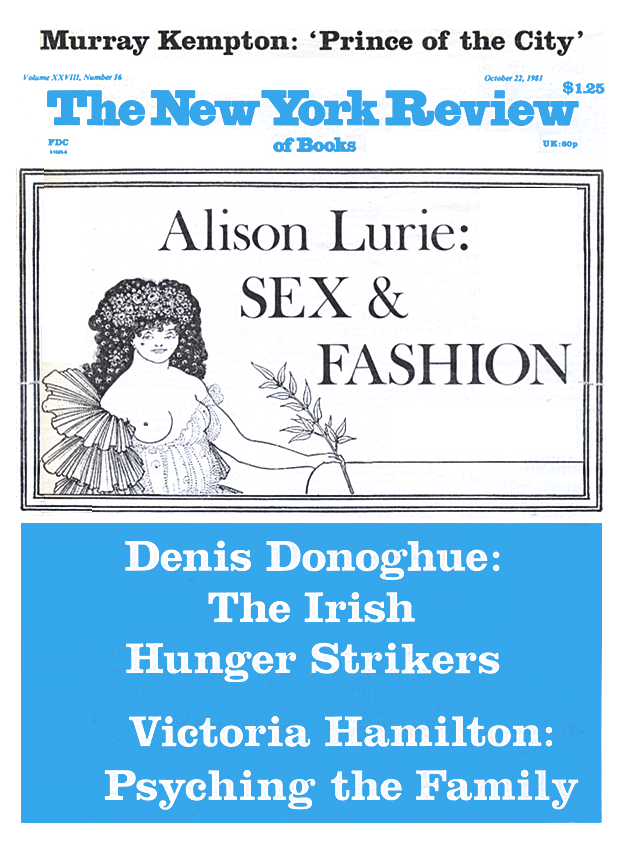These translations of three poems by Montale were found among Robert Lowell’s papers in the Houghton Library at Harvard. Like all Lowell’s versions of other poets, they are “free”: “Bellosquardo,” for example, is only the first half of Montale’s “Tempi di Bellosquardo.” They were probably written in the mid-Sixties. I want to thank Alan Williamson for finding and identifying the texts.—Frank Bidart
BELLOSQUARDO
Oh how faint the twilight hubbub rising from
that stretch of landscape arching towards the hills—
the even trees along its sandbanks glow
for a moment, and talk together tritely;
how clearly this life finds a channel there
in a fine front of columns flanked by willows,
the wolf’s great leaps through the gardens past the fountains
spouting so high the basins spill—this life
for everyone no longer possessed with our breath—
and how the sapphire last light is born again
for men who live down here; it is too sad
such peace can only enlighten us by glints,
as everything falls back with a rare flash
on steaming sidestreets, crossed by chimneys, shouts
from terraced gardens, shakings of the heart,
the long, high laughter of people on the roofs,
too sharply traced against the skyline, caught
between the wings and tail, massed branchings, cloud-
ends, passing, luminous, into the sky
before desire can stumble on the words.
FLUX
The children with their little bows
terrify the wrens into holes.
Sloth grazes the lazy, thin blue
sky-painted trickle of the stream—
rest from the stars for the barely
living walkers on the white roads.
Tall steeples of poplars tremble
and overtop the hardened hill
surveyed by a statue, Summer—
stonings have made her negro-nosed,
and on her there grows a redness
of creeper, a humming of drones.
The wounded goddess does not look,
and everything is bending to
follow the fleet of paper boats
descending slowly down the trough.
An arrow glistens in the air,
fixes in a stake, and quivers.
Life’s this squandering of banal
occurrence; vain, rather than cruel.
They come back, if a season’s gone,
a minute, these tribes of children
with bow or sling, and find the dead
features unaltered, even if
the fruit they grasped no longer hangs
dead on the young bough. The children
come back again…like this. One day,
the circle that controls our life
will return with the past for us,
distant, fragmented and vivid,
thrown up on an unmoving screen
by an unrevealed projector.
And still the hazy, pale blue vault
vacantly bridges the teeming
watercourse. Only the statue
knows what plunging, lost, entangled
things die in the burning ivy.
All is arched for the great descent:
the channel surges on wildly,
its mirrors crinkle; small schooners
are speeded, caught and wrecked in the
eddies of soap-foamed waste. Goodbye—
stones whistle through the thinning branch,
and gasping luck makes off again,
an hour slips, its faces dissolve…
life is cruel, rather than vain.
BOATS ON THE MARNE
Joy of the bobber heading for the drift
drawn by the small, white arch-stones of the bridge,
the full moon drained of color by the sun—
the boats are nimble on the Marne, retarded
by autumn and the city’s sluggish drone;
and if you touch the meadows with your oar,
the butterfly catcher will reach you with his net;
each ivied swelling and espaliered wall,
a wash of red, retells the dragon’s blood.
It’s easy to hear their voices on the river,
bursts from the banks, the twilight of canoes
and couples gliding under breezy manes
of chestnut trees, but who can hear the filing-in
of seasons, each measured out its brandy for
the vast, untrampled dawn? Where’s the great wait?
How measure their invading emptiness?
This is the dream: a huge and endless day
returns to pour its glare, almost unmoving,
below the bridges, then, at every turn,
man and his good works struggle to the surface,
and float, and vague tomorrow veils its horror…
But the dream was more than this, and its reflection,
still fleeing on the water, swims below
some swinging nest, unreachable, pure air
and silence; and high above the gathered cry
of noonday hangs another morning, morning
over evening and evening over morning—
and the great turmoil is a great rest.
Here then?
Here the enduring color is a mouse
dancing among the rushes, or the starling,
a dash of poisonous metal, sinking in
the smoke-mist of the bank.
“Another day,”
we’ll say. Or what will you say? Ask this day
where it will carry us, this mouth, this river,
writhing into a single gush?
It’s night:
we can go lower, explore the depths, and rest,
until the rising constellations burn.
This Issue
October 22, 1981


